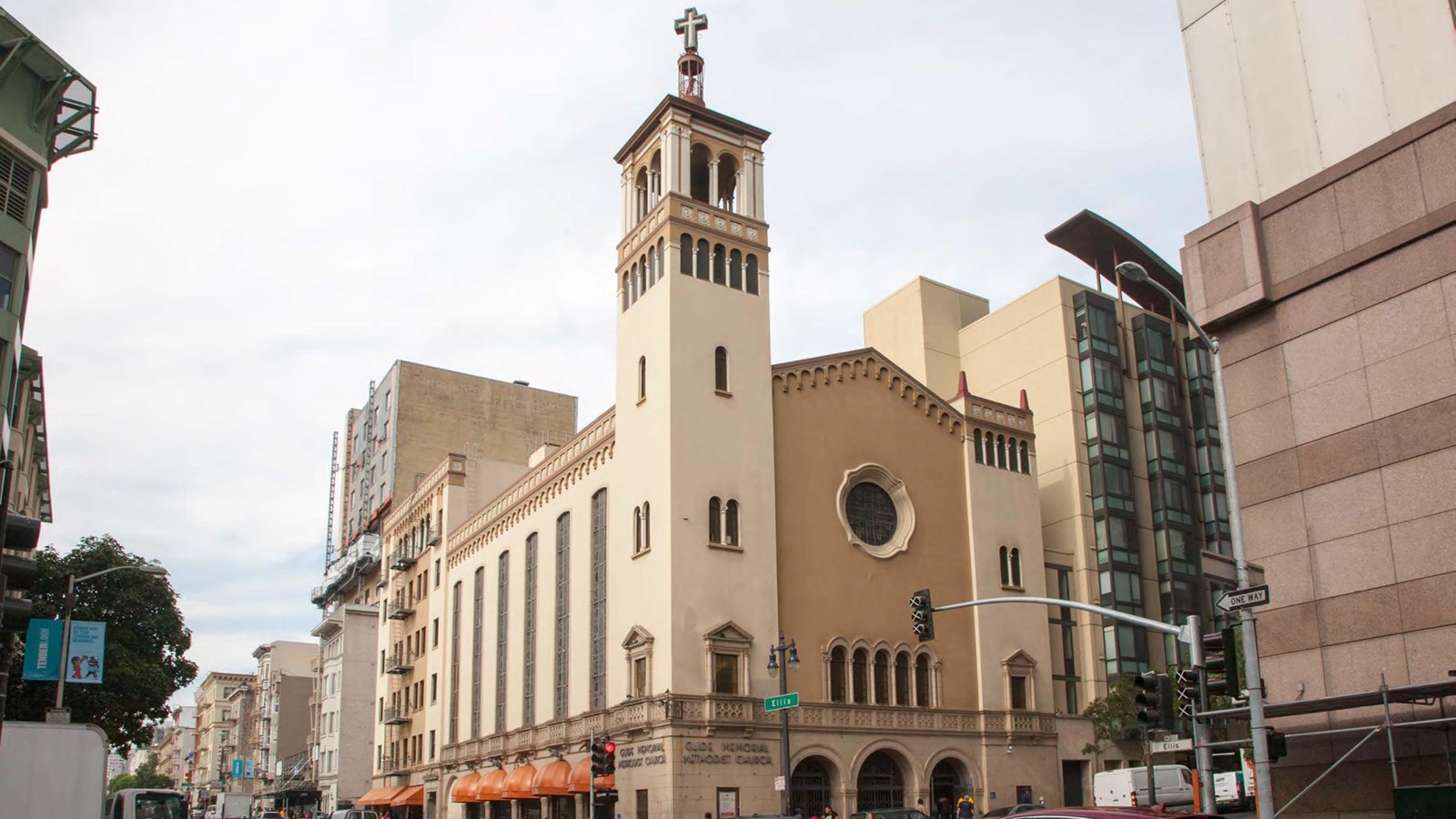Last updated: February 19, 2025
Place
Glide Memorial Church

Photograph by Shayne E. Watson, courtesy of the California State Historic Preservation Office
The Glide Memorial Church in the Tenderloin neighborhood of San Francisco, California was listed in the National Register of Historic Places in 2022. The church is historically significant as a space for progressive activism and ministry for the neighborhood’s LGB, Black, and Asian American communities in the 1960s and 1970s.
Glide Memorial Church was built in 1931. Methodist philanthropist Lizzie Glide, who had long dedicated her time and money toward evangelizing young women, chose the church’s site in downtown San Francisco to reach the area’s growing population of young, working-class people. By the 1950s, however, the church struggled to maintain a steady congregation as working professionals moved out of the neighborhood. The congregation dwindled to just 35 as the neighborhood gained a reputation for crime, drug use, and sex work.
In 1964, Reverend Cecil Williams joined the leadership of Glide Memorial, transforming the church’s congregation and mission. Williams, along with his future wife Janice Mirikitani and other members of the Glide staff, re-oriented the church to serve the most downtrodden members of the Tenderloin. Perhaps most radically, this included the district’s sizable LGB population. The church’s deep engagement and activism for the LGB community was so significant that Dr. Susan Stryker, an LGB historian, later described the church as the “midwife of the modern LGB movement.”
The Glide Memorial Church continually served as a space for homophile activism. Beginning in 1965, the church served as the headquarters of the Council on Religion and the Homosexual, which brought together clergy and gay rights activists. It also provided sponsorship and a gathering space for Vanguard, one of the first gay liberation groups in the country. In the Fellowship Hall of the church members of Vanguard hosted dances, organized holiday dinners, published a journal, and organized a “sweep-in” to clean the streets of the Tenderloin. While not specifically targeted at LGB youth, Glide also sponsored housing for runaway youth, many of whom were queer.
Glide and its staff were also active in other progressive causes of the era. In conjunction with local lawyers, doctors, and civil rights organizations, Glide supported the creation of Citizens Alert in the 1960s. Citizens Alert was a citywide police watchdog program that operated a hotline and support for victims of police brutality and advocated for systemic police reform. Williams was also a leader of the Committee United for Political Prisoners (CUPP), a group started by the Black Panthers to free political prisoners and combat racism in the criminal justice system. At various other times in the church’s history, the church supported efforts to create ethnic studies programs, address the incarceration of Japanese Americans during World War II, and end the crack epidemic.
For its significant involvement in social causes that shaped both San Francisco and national history, Glide Memorial Church was nominated for the National Register by the City of San Francisco, as part of a National Park Service Underrepresented Communities grant.
